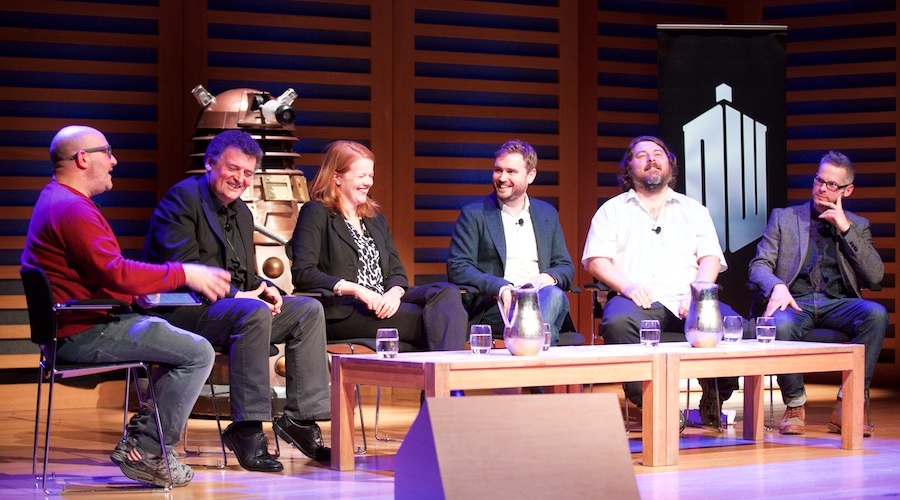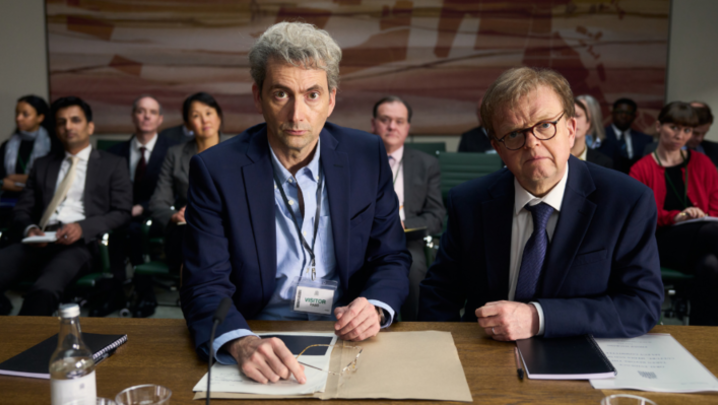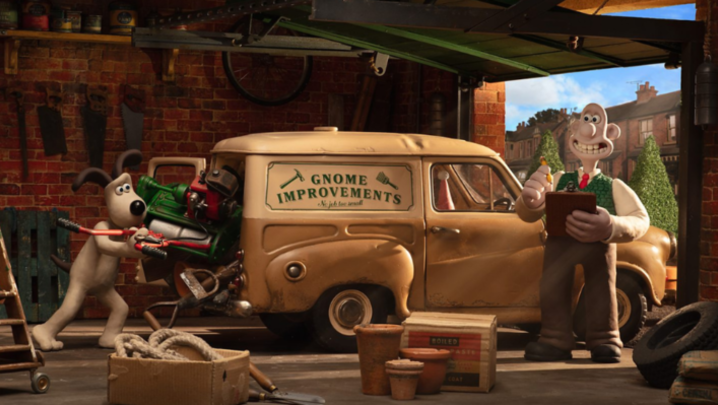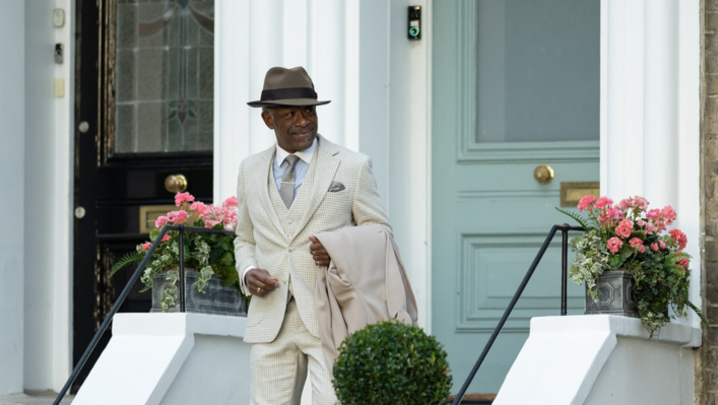Steven Moffat is joined by Nikki Wilson, Brian Minchin, Ben Wheatley, Rob Mayor and Boyd Hilton in a discussion all things Who.
Peter Capaldi’s debut series of Doctor Who ended last Saturday in traditional style, with the Time Lord saving the world from the Cybermen. A few days later, showrunner Steven Moffat and key members of his team explained to a packed RTS early-evening event how they had made the latest run of shows.
In addition to Moffat, the panel was made up of Executive Producer Brian Minchin, Producer Nikki Wilson, Rob Mayor from prosthetics and animatronics specialist Millennium FX and Ben Wheatley, who directed the first two episodes in the latest series. Keeping the panellists in order from the rear of the stage were a Dalek and a Weeping Angel.
Since the BBC One sci-fi series was regenerated by Russell T Davies in 2005, the doctors have been either youngish (Christopher Eccleston) or positively youthful (David Tennant and Matt Smith). Moffat revealed that the Doctor Who team had agreed to age the doctor when Smith decided to leave after the 2013 series.
“[We didn’t want] to cast another attractive young man with entertaining hair – we knew we had to do something different,” he said.
-- To see a gallery of photos from the night click here --
Capaldi was made to measure for the role, reckoned Moffat: “The moment the rumour of Peter got out, everyone assumed it would be him. We unveiled him to a nation who already knew and, in a great act of mass performance, affected to be surprised.”
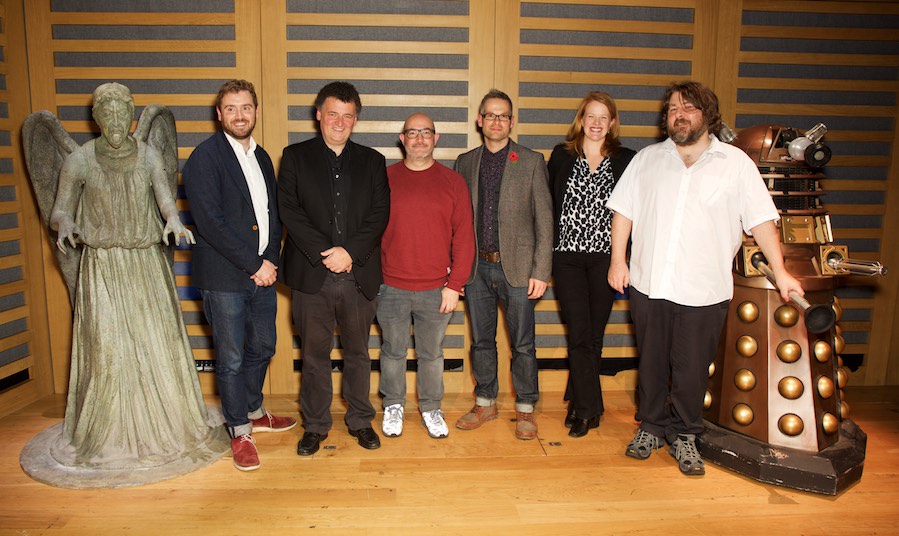
Heat magazine TV critic and Doctor Who fan Boyd Hilton, who chaired the event, asked whether it was largely Moffat and his team of writers who had created the new doctor’s persona.
“You write him in a surprisingly similar way to the previous doctor and then that actor starts to create a new one. You want to be influenced by the performance hugely,” replied Moffat.
Capaldi, like the previous doctors, has, to a large extent, created his own character. “None of those guys are pushovers – trust me,” said Moffat. “Matt [Smith] may not have the scary eyebrows, but he’s every bit as emphatic. You invite each doctor to have a huge input – that’s what you’re employing them for. I’m not employing them to act for me – that would be shit.”
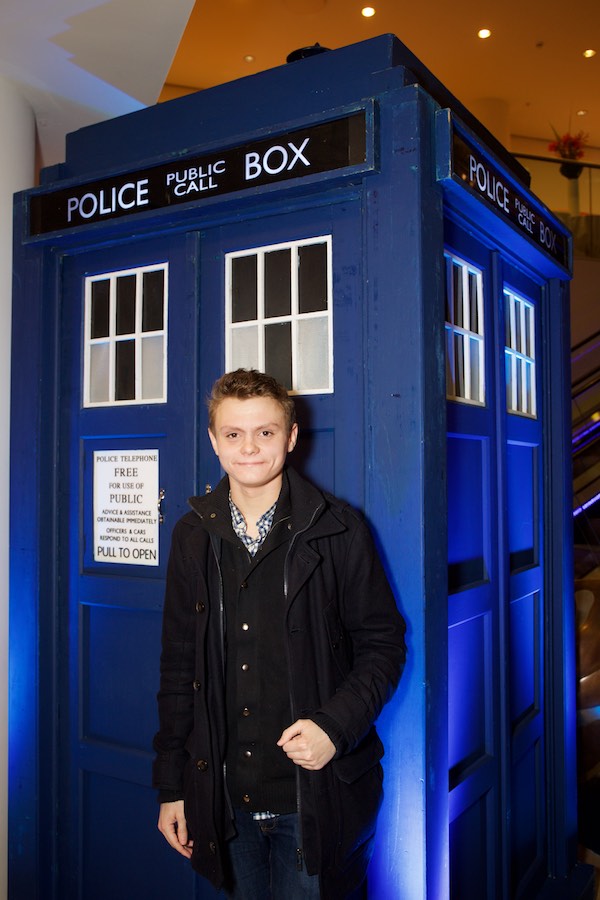
Saturday-night audiences have dipped during the current series, but Moffat argued that, when catch-up views are added to the total, Doctor Who has rated as well as before.
“The headline, boring though that it is, is that [the ratings] have barely changed since it came back. The way people watch it has changed,” he said.
Worldwide audiences have been growing, with ratings surging in America during the Capaldi era. “I would be working hard, even as a Scot, to be disappointed by that,” said Moffat.
‘Doctor Who: anatomy of a hit’ was held at King’s Place in central London on 11 November. It was produced by Sally Doganis and Barney Hooper. A full report of the event will be published in the next issue of Television.
Report by Matthew Bell
Pictures by Paul Hampartsoumian
Film by Rebecca Stewart @bexstewart1

